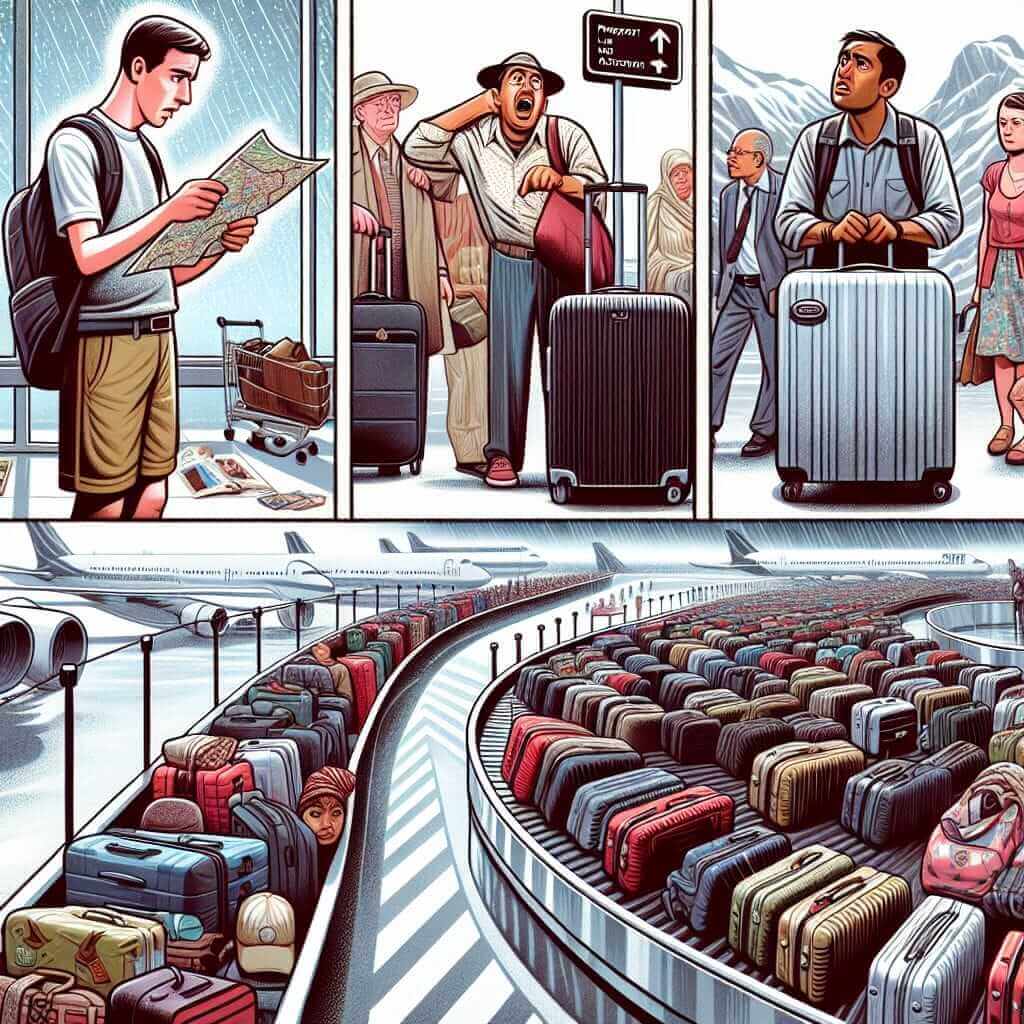As an experienced IELTS instructor with years of experience evaluating Speaking tests, I understand the nuances of achieving a high score. A common question in Part 3 of the Speaking test relates to travel challenges. Mastering this seemingly simple question can significantly boost your fluency and vocabulary scores.
Understanding the “Challenges of Traveling” Question
The IELTS Speaking test assesses your ability to communicate effectively in English. When you encounter the question “What are some of the challenges of traveling?”, the examiner is evaluating several aspects:
- Vocabulary: Can you use a range of vocabulary related to travel, challenges, and solutions?
- Fluency and Coherence: Can you speak smoothly and connect your ideas logically?
- Grammar: Are you using grammatical structures accurately?
- Ideas: Can you provide well-developed and relevant examples to support your points?
Effective Strategies for Answering
Here’s how to tackle this question strategically:
1. Brainstorming and Structure
Before you even begin speaking, take a moment to mentally organize your thoughts. Consider the following:
- Types of Challenges: Categorize challenges into groups like logistical (e.g., booking flights, packing), cultural (e.g., language barriers, customs), personal (e.g., homesickness, budget constraints), or environmental (e.g., weather, unfamiliar terrain).
- Examples: For each category, have specific examples ready. Personal anecdotes work well, or you can draw from news stories or general knowledge.
2. Language of Challenges
Use a variety of vocabulary to discuss challenges. Instead of constantly saying “difficult,” consider:
- Adjectives: demanding, arduous, tricky, problematic, daunting, taxing
- Verbs: struggle with, contend with, encounter, overcome, cope with, handle
- Phrases: pose a challenge, present difficulties, a major obstacle
3. Providing Solutions
Don’t just list challenges. Demonstrate problem-solving skills by suggesting solutions or coping mechanisms:
- Example: “One challenge can be language barriers. But nowadays, translation apps on smartphones can be incredibly helpful in bridging the communication gap.”

Example Response and Analysis
Examiner: “What are some of the challenges of traveling?”
Candidate: “Well, I think one of the biggest challenges can be the logistical aspects. For example, booking flights and accommodation can be quite time-consuming and sometimes frustrating, especially during peak season. Another challenge is adapting to different cultures. I remember when I traveled to Japan, I initially struggled with the etiquette surrounding chopsticks. However, I made an effort to learn and eventually became more comfortable. Of course, budget constraints are always a challenge, but I’ve found that planning ahead and researching affordable options can make a big difference.”
Analysis:
- Vocabulary: The candidate uses a good range of vocabulary (logistical aspects, time-consuming, frustrating, adapting, etiquette, constraints)
- Fluency and Coherence: The answer flows well, with clear transitions between ideas.
- Grammar: Structures are accurate, demonstrating control over complex sentences.
- Ideas: The candidate provides relevant examples and even offers a solution to the budget challenge.
Essential Tips for Success
- Practice: Speak your answers aloud to improve fluency and pronunciation.
- Expand Your Vocabulary: Make a list of travel-related vocabulary, including synonyms for common words.
- Record Yourself: Listen back to identify areas for improvement in pace, clarity, and grammar.
- Stay Calm and Confident: Remember to breathe and speak naturally.
Conclusion
Effectively answering the question about travel challenges involves a combination of vocabulary, coherence, and relevant examples. By following these tips and practicing regularly, you can confidently approach this question and boost your chances of achieving your desired IELTS score.